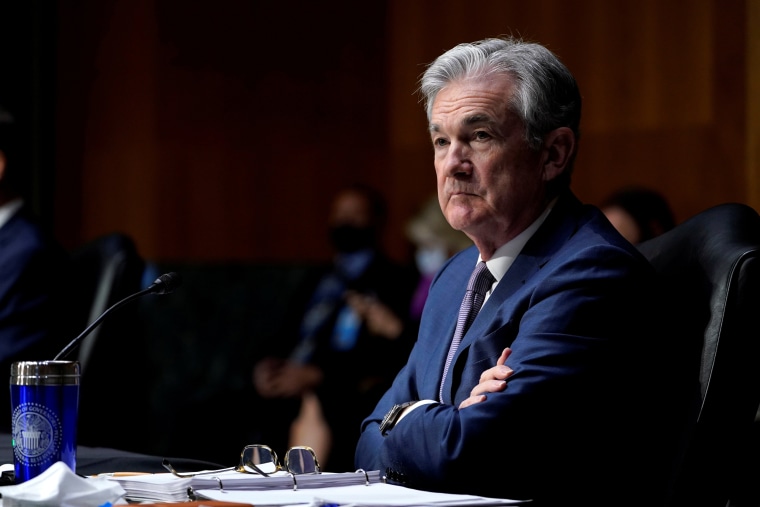As Democratic officials move forward on trying to pass an ambitious COVID relief package, an unexpected voice emerged last week, making the case that policymakers may be aiming too high. Larry Summers, Bill Clinton's Treasury secretary and Barack Obama's National Economic Council director, suggested a $1.9 trillion package would be so effective, it risked overheating the economy.
Not surprisingly, Summers' case generated all kinds of pushback -- which I found persuasive -- but the damage was done. A variety of Republicans, including Sen. Mitt Romney (R-Utah), said they were open to some kind of relief package, but they pointed to the Democratic economist's concerns as a rationale to oppose the plan endorsed by President Joe Biden.
It was against this backdrop that proponents of the Democratic package did something interesting this week: they in effect said, "I'll see your Larry Summers and raise you a Jerome Powell. Bloomberg News reported:
Federal Reserve Chair Jerome Powell said the U.S. job market remains a long way from a full recovery and called on both lawmakers and the private sector to support workers.... Powell's remarks echo the urgency voiced by President Joe Biden for his $1.9 trillion in additional pandemic aid, a package that is moving ahead in Congress despite Republican opposition. In doing so, he also delivered a nuanced rebuttal to the minority of Democrats, as exemplified by former Treasury Secretary Lawrence Summers, who view that relief proposal as too large.
As we discussed the other day, while the official unemployment rate has improved to 6.3%, the Fed chair also explained this week that this doesn't fully reflect the number of Americans who've exited the workforce altogether. Powell argued that a fuller measure of unemployment would put the rate at roughly 10% -- matching the worst points of the Great Recession more than a decade ago.
Eric Levitz flagged another key element of Powell's remarks, noting that the Fed chair's indifference to concerns about robust job growth causing problematic inflation.
Not only does it suggest that Powell believes the U.S. economy can support an unemployment rate significantly below the 3.5 percent we saw in early 2020, the statement also implicitly rebukes the Congressional Budget Office's official estimate of how much more demand the economy can accommodate without overheating. Which is significant, since Summers built his "overheating" argument around the CBO's (historically unreliable) estimate of that figure.
Perhaps no one was more impressed by Powell's remarks than Ron Klain -- Biden's White House's chief of staff.
Facing a tough legislative task, arguably the Democrats' most important ally is the man Donald Trump and Senate Republicans chose to lead the Federal Reserve.

